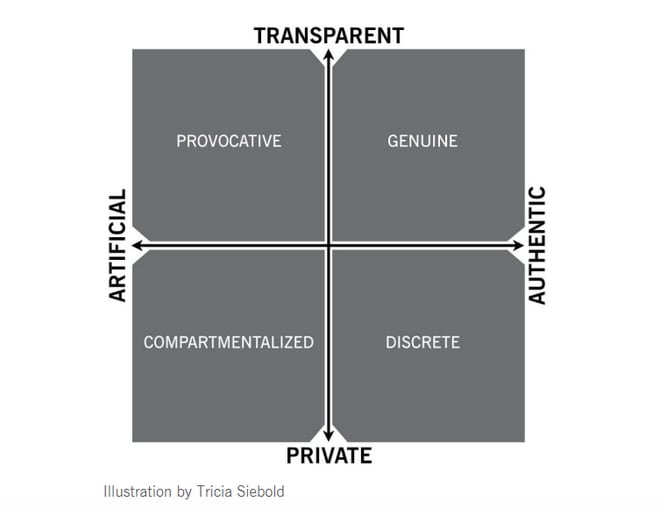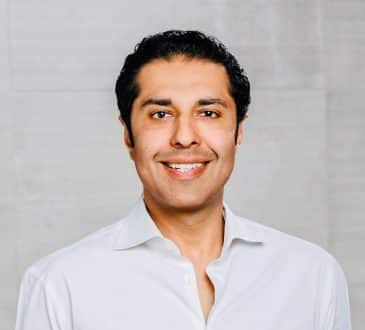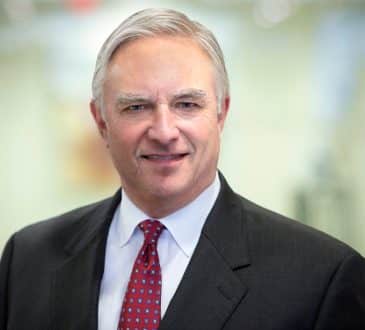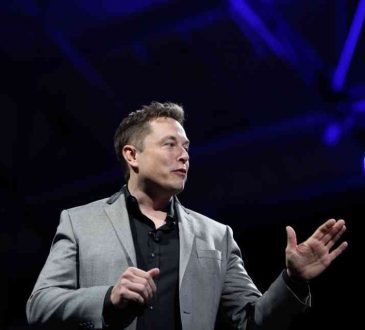Advocating for LGBTQI+ as Authentic Leaders – Leaders leading leaders

An individual’s struggle with coming to terms with who they are is an extremely valuable leadership insight especially when coaching employees to appreciate their true value. A self-aware leader will know learning to accept and respect who they are is an important first step to understanding other people’s value and what motivates them. How we perceive the world is dependent on our circumstances and level of self-value which underscores our ability to learn¹.
Appreciate a whole lifetime of experiences, actions, decisions, and learning defines our capability and indeed our identity. Once we are self-aware, and we understand what fulfills us, what we like, what we dislike, we can direct our capability purposely by aligning big, impactful goals. When we accept our strengths and weaknesses are part of what makes us unique, we are more positive and can set our minds on the future. The more we are genuine and trust in who we are, the more we learn to be true to ourselves to deliver on our purpose (our why).
Being open about who you are will help you succeed as an authentic leader. More than 50% of LGBTQI+ people do not disclose their sexuality at work². Revealing your sexual identity on the job and coming out still carries risk in more traditional organisations where self-awareness and individuality may not be valued.
So, what does it mean to be authentic and comfortable in your own skin? Authenticity is a product of knowing who you are and being your true self. Many LGBTQI+ people carry the shame associated with growing up different and trying to fit in. And this is true for many minorities. And many feel the need to overcompensate and be seen to be living a stereotypical lifestyle. The LGBTIQ+ community must appreciate their true value is not conforming to other ideals and expectations, but appreciating their creative, unique difference. To lead a meaningful life is to draw upon, and exercise, a range of our higher capacities, for example, those bound up with empathy, care, connection, self-understanding, individuality, and creativity.
Being positive is the calm associated with living in the moment and being present once we have resolved the past, the self-doubts, the negative distractions in our minds to become centred and guided by our instincts. Appreciate a lifetime of struggle and shame can equip us with the life skills to help deal with perceived adversity. Understanding what your heart is telling you will reveal your passion – the product of associating a lifetime of experiences. Learn to be your unique self and trust in who you are and there you will find your passion and purpose. And you will flourish.
LGBTQ leaders have several options for how they control their stories: They can be artificial or authentic, private, or transparent. For instance, someone might choose to be private at work but out among friends. Another person might behave very provocatively but lack authenticity — Schramm points to Liberace as an example.³
“You can lead from any box,” Schramm says. “But you can lead stronger if you lead out loud, which means leading from the top right quadrant.”
Embracing our unique qualities, our values and stories as a leader is authentic leadership. As an authentic leader, you are a “servant first” – you focus on the needs of others, especially team members, before you consider your own. Authentic leadership relies primarily on building competence in relationships with people who, together with the leader, produce the results and conditions. Together they continually strive for both personal and organisational potential.
A study by David Rooke and William R. Torbert named the Seven Transformations of Leadership found the search for new leadership perspectives often manifests itself in personal transformations and increased self-awareness. The ready-to-transform leader starts developing new relationships. They found leaders who do undertake a voyage of personal understanding and development can transform not only their own capabilities but also those of their companies. Only the top 15% of managers in the sample (Individualists, Strategists, and Alchemists) showed the consistent capacity to innovate and to successfully transform their organisations. Strategists typically have socially conscious business ideas that are carried out in a highly collaborative manner. Alchemists like Nelson Mandela constituted only 1% of the sample are typically charismatic and extremely aware individuals who live by high moral standards. They focus intensely on the authentic truth creating symbols and metaphors that speak to people’s hearts and minds.
We will find difficulty in fulfilling our leadership potential until we really desire to learn to be true to ourselves and to serve others. Yet desire alone is not enough, you need to genuinely commit to want to lead in this way and adapt a sharing mindset. There needs to be a determination to change attitudes and finally there requires development utilising the principles of authentic leadership. In general, because members of the LGBTQI+ grow up feeling different and have struggled for acceptance, they tend to be more open and adaptive to change. They may even start with a sharing mindset. The choice to develop the characteristics of an authentic leader may not be too dissimilar to the decision to come out and to live more authentically.
Some industries and organisations may be less open and accepting as others. How open a culture is to accepting minorities will determine whether employees can bring their whole unique selves to the workplace. Living transparently reduces the psychological trauma of having to mask your identity or having to conform to the values and ideals of others. Therefore, as a LGBTQI+ person, if you cannot influence a more respectful culture, then find an organisation that values your individuality and diverse perspectives. Having a voice is an absolute requirement for developing leadership qualities. For organisations, there is one simple truth to retaining authentic leadership potential:
“Continue to meet my needs and I’ll stay. Keep seeking ways to enhance our relationships and I will not only stay, but I will bring others to you too, and I will do more, willingly. If my needs are taken for granted, I’ll be off!”
A socially competent, self-aware leader will employ their open mindset, trust, executive functions, and situational awareness to inspire and influence visions and future strategy. Situational awareness is attained through your unconscious, instinctive, generalist understanding that triggers your curiosity. Meeting the needs of others so they will meet yours, and those of the organisation and its stakeholders, is one of the most important things a leader can do. Self-aware leaders recognise the need for employees to grow and are more able to coach and challenge them to build confidence and awareness. And employees feel more secure and motivated knowing they have a pathway to grow. Authentic leaders appreciate a person’s self-worth is their most treasured possession and must be handled with the greatest of care.
Ralph Waldo Emerson once said, “It is one of the most beautiful compensations in life that no person can sincerely try to help another without helping themselves…” Authentic leaders value the wisdom in storytelling and having deeper conversations. They love to share their understanding, do not seek the limelight, and move others forward to take the bows, and the appreciation. Authentic leaders value how they can positively influence people’s feelings.
So how can we support authentic leadership in the workplace?
The best way to create a culture of authenticity in an organisation is to remove the vertical authority and hierarchy that creates compartments and barriers in the mind. Allow people to partner and work collectively in purpose driven environments for mutual responsibility and accountability. Promoting purposeful social and environmental causes deepens our relationship and social skills. Meaningful relationships both inside and outside of work, develops our environmental understanding and situational awareness. A by-product of developing deeper relationships is learning more about ourselves. Self-awareness allows us to be more trusting, present, spontaneous, better listeners, and manage our emotions appropriately. And these positive Ei skills also equip a leader to act as a coach for reasoning through complexity (by instinct), observation and encouraging engagement.
The attributes of a great team leader include:
- Being focussed on creating an environment, where employees can manage themselves.
- Promotes trust by genuinely caring for the wellbeing of employees, by being authentic, calm, and great listeners
- The capacity to manage uncertainty and vulnerability is valued as a core competence
- Helping the team to define team boundaries while clearly articulating the objectives and expectations up front
- Can observe the team behaviours and dynamics, and engage, coach, and motivate when appropriate
- Knows the value of empowering the team to pitch ideas and have a voice
- The value in establishing a safe environment so team members can bring their whole selves to work
- Are objectives driven and employ purposeful strategic pathways for employees to grow
- Is agile and adaptive, and substitutes limiting HR performance plans with timely coaching
- Knows that when they embody trust, they will help create trust in the team – team members know that trust is a product of respect
- Use humour to bring out the human interaction at meetings
Authentic leaders know teams will achieve, and grow, when it does not matter who gets the credit. They acknowledge other people’s perspectives, give them the support they need to meet their work and personal goals, involve them in decisions where appropriate, and build a sense of community as a team. They appreciate knowledge is most valuable when freely shared across the organisation to encourage growth. Emily Kittle Morrison says in her book… Some things that belong to us are so precious that we cannot sell them we must share them with others. This leads to higher engagement, more trust, and stronger relationships with team members and other stakeholders. It also delivers less groupthink, more unique perspectives and supports increased innovation.
And applying the following team principles will work in support of an authentic leader:
- Teams are stakeholder focussed, collaborate inside, and compete only outside the organisation
- The sum of the parts is substantially more valuable than individual contributions
- Cross functional teams connect an array of divergent, specialist skillsets to accelerate learning
- Replace delegation with SAR (Sharing Accountability and Responsibility)
- Being respectful and accepting of our colleague’s opinions builds trust, allowing us to show up and express our unique views
- Self-supporting teams lift each other up
- Dissenting opinions are valued – groupthink discouraged
- Team members can be imperfect, and mistakes are a valuable learning opportunity
Organisations must appreciate a meaningful life is bound in long-term objectives but all too often we are distracted by instant gratitude and short-term profit motives. The opportunity cost to an organisation is they may fail to develop the value systems or behaviours needed to delay false gratification and play the longer game. We are seeing a systemic shift in the way businesses are organised, allowing every employee the opportunity to contribute collectively. In this rapidly evolving new world order – genuine, authentic leaders who can express their truth with passion and purpose are leading us to a new social paradigm where diversity and inclusion are genuinely respected. Only now is leadership reaching a point of collective development, to understand that diversity of thought is broader than men versus women, and that diversity in leadership means a commitment to empowering employee value and ‘constantly evolving culture’.
Tony Holmwood is a culture and change strategist who coaches leaders and HR to coach culture change. His internationally acclaimed and awarded book “Best Behaviour” uses behavioural modelling and research to establish what environments, employee circumstances, sense of self value and leadership behaviours support cultural transformation. His bottom-up, all-in approach establishes the trust required to coach change success. Tony also mentors for StartOut, Out for Australia and AHRI.
1. HRM: Job insecurity can change your personality, says new study By Kate Neilson
2. Stanford GSB: Authenticity Can Help LGBTQ Leaders Be More Effective, October 4, 2016|by Katherine Conrad
3. J.D. Schramm is a Lecturer in the LGBT Executive Leadership Program at Stanford GSB.
Written by Tony Holmwood. Have you read?
# America’s most luxurious hotels, 2020
# Happiest countries in the world, 2020
# World’s Richest Tech Billionaire CEOs For 2020
# Best wedding destinations in the World for 2020
# Best Business Schools In The World For 2020
Add CEOWORLD magazine to your Google News feed.
Follow CEOWORLD magazine headlines on: Google News, LinkedIn, Twitter, and Facebook.
This report/news/ranking/statistics has been prepared only for general guidance on matters of interest and does not constitute professional advice. You should not act upon the information contained in this publication without obtaining specific professional advice. No representation or warranty (express or implied) is given as to the accuracy or completeness of the information contained in this publication, and, to the extent permitted by law, CEOWORLD magazine does not accept or assume any liability, responsibility or duty of care for any consequences of you or anyone else acting, or refraining to act, in reliance on the information contained in this publication or for any decision based on it.
Copyright 2024 The CEOWORLD magazine. All rights reserved. This material (and any extract from it) must not be copied, redistributed or placed on any website, without CEOWORLD magazine' prior written consent. For media queries, please contact: info@ceoworld.biz
SUBSCRIBE NEWSLETTER









